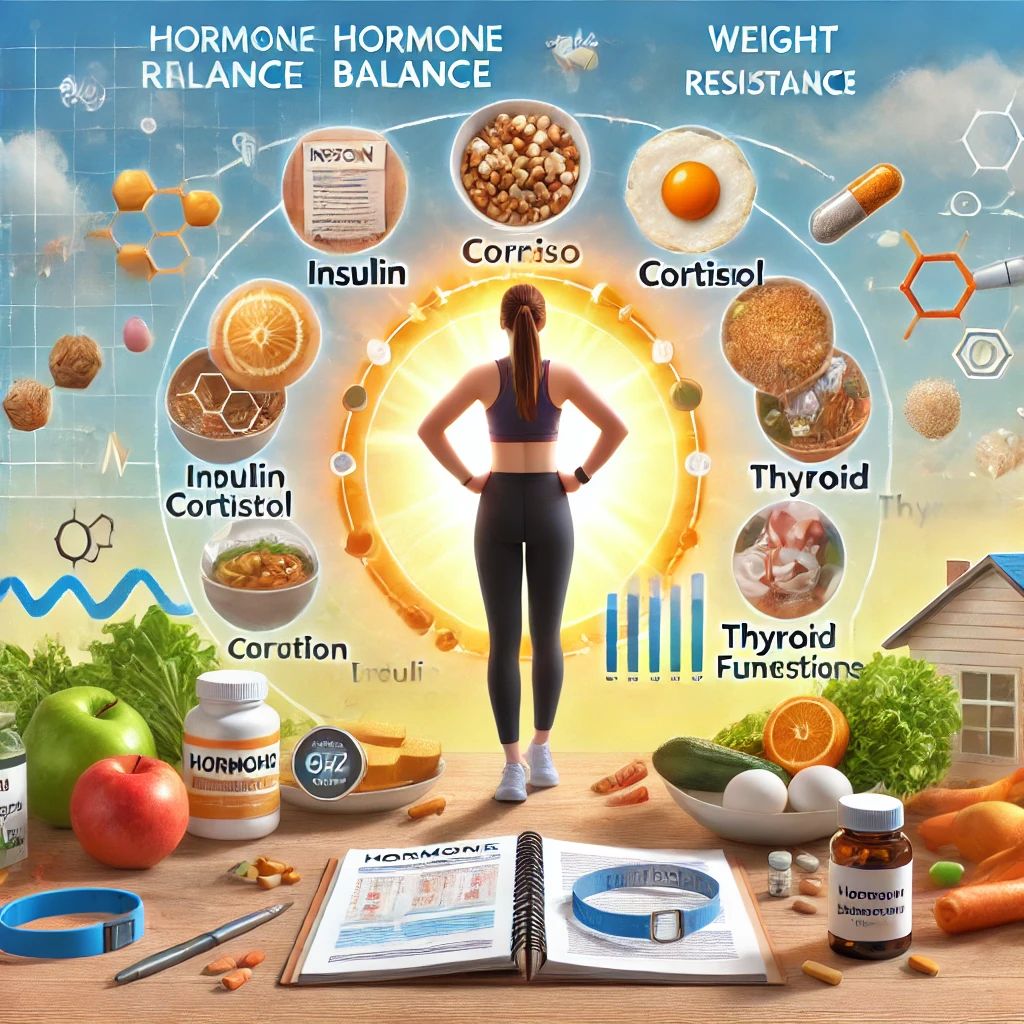
How Hormonal Imbalances Impact Weight Loss
Struggling to lose weight despite diet and exercise? Hormonal imbalances might be the hidden culprit behind weight loss resistance. Hormones play a crucial role in regulating metabolism, appetite, and fat storage, and when they are out of balance, losing weight becomes a greater challenge. Understanding the connection between hormones and weight loss can help you address underlying issues and find more effective ways to reach your fitness goals.
Key Hormones That Affect Weight Loss Resistance
Several hormones influence how your body processes food, stores fat, and burns calories. Imbalances in these hormones can lead to weight gain or make weight loss difficult, even when you're doing everything right.
1. Insulin: The Fat-Storing Hormone
Insulin is produced by the pancreas and regulates blood sugar levels by promoting the storage of glucose as fat when there’s an excess:
2. Cortisol: The Stress Hormone
Cortisol is released by the adrenal glands in response to stress. While it’s essential for managing stress, chronic elevated cortisol levels can lead to weight gain:
3. Leptin: The Satiety Hormone
Leptin is produced by fat cells and signals to your brain when you’re full, helping regulate appetite and prevent overeating:
4. Ghrelin: The Hunger Hormone
Ghrelin is responsible for stimulating appetite and signaling hunger to your brain. It typically increases before meals and decreases after eating:
5. Thyroid Hormones: Metabolism Regulators
The thyroid gland produces hormones that regulate metabolism, including thyroxine (T4) and triiodothyronine (T3). These hormones are responsible for how efficiently your body burns calories:
6. Estrogen and Progesterone: The Female Hormones
In women, the balance between estrogen and progesterone affects how fat is stored and distributed in the body:
How to Address Hormonal Imbalance and Weight Loss Resistance
If you suspect that hormonal imbalance is affecting your ability to lose weight, there are several steps you can take to address the issue and improve your chances of success:
1. Get a Hormone Check
The first step is to identify if you have a hormonal imbalance through a medical consultation. Blood tests can help diagnose issues with insulin, cortisol, thyroid function, or other hormone levels that might be hindering your weight loss efforts.
2. Adopt a Hormone-Balancing Diet
Focus on whole, unprocessed foods that support hormonal health:
3. Exercise Regularly
Exercise plays a key role in balancing hormones, improving insulin sensitivity, reducing stress, and boosting metabolism. A combination of cardio and strength training is ideal for optimizing hormonal health.
4. Get Enough Sleep
Sleep is crucial for balancing hormones like ghrelin, leptin, and cortisol. Aim for 7-9 hours of quality sleep each night to support weight loss and overall health.
5. Manage Stress
Chronic stress leads to elevated cortisol levels, which can contribute to weight gain and fat storage. Incorporate stress-relief techniques such as yoga, meditation, or deep breathing exercises to help lower cortisol levels.
Conclusion: Overcoming Weight Loss Resistance by Balancing Hormones
Hormonal imbalances can significantly impact your ability to lose weight, but by addressing these imbalances through proper diet, exercise, and lifestyle changes, you can overcome weight loss resistance. Understanding how hormones like insulin, cortisol, and thyroid function affect your body allows you to take proactive steps to restore balance and achieve your weight loss goals.


